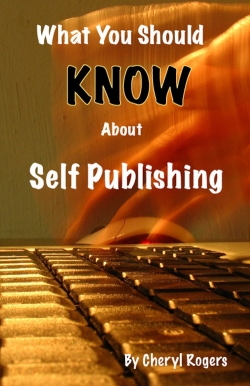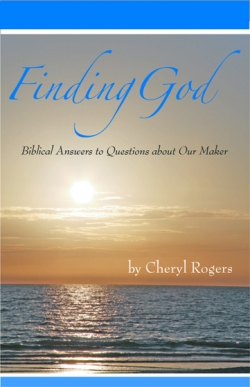How to Write Your Christian E-book

Writing Your Christian E-Book
If you can't shake the idea of writing a book, but don't know where to start, this Hubpage is for you! You'll learn: How to organize your thoughts and begin writing, where to publish it and how to sell it.
A freelance writer and self publishing assistant, I have published 19 of my own ebooks. One of them also is in print; the 20th ebook is slated for release later this year. In this Hubpage, I will take you through the steps, giving you helpful resources, including books and websites.
We all are enrolled in the school of hard knocks. The older we get, the more we learn, and the more we can share with others.
Most of us teach those around us: Our family, our friends, or fellow church members. But some of us have a book on our hearts -- or two, or three, or more. Something inside us cries out to be heard, to share what we've learned through the depths of our own pain, to help others and spare them misery. Something inside us screams to share the knowledge of God's great love and mercy.
Not everyone is a born writer, however. Nor is everyone trained. So how do you get your message out? How do you impact the world through your book?
The good news is, it is a lot easier today than ever. Through the nifty invention of the ebook, nearly everyone can be an author. Writing and self publishing a book is at the reach of everyone with a message and a computer, or access to a computer.
Here is a breakdown of the process.
* If possible, use a computer and word processing software to prepare your ebook. If it is not, prepare a handwritten or typed manuscript and arrange to have it scanned or entered into a computer later.
* Organize your thoughts. This is time well spent! Prepare an outline which you can use as a road map when you write. Arrange your ideas in an easy-to-follow format.
* Do you have pertinent facts or do you need to do more research? Spend the time you need to become authoritative on your subject. You can do lots of research on the Internet, but you may want to rely on trusted reference books. If you want to quote the Holy Bible, you can find digitized versions online which will allow you to cut and paste the Scriptures right into your manuscript.
* Prepare a rough draft. Follow your road map as you flesh out your book. Feel free to tackle parts of the book out of sequence, as long as they can be plugged in later.
* Hit the hunch. Whenever possible, write when you are inspired. There is no need to slow down for the details, just write. You can check your spelling and add facts later.
* When you have completed your rough draft, you may want to put it aside for a few weeks so you can be more objective about it. Or, you may choose to share it with someone who can give you good counsel. Before you go any farther, you will want to know if your book does what you intend. Is it written so it will appeal to those you hope to reach? Does it have good, solid information to support your key points? Or do you need to do more research? Does your book need to be reorganized? You may want to refine your outline and rework your manuscript accordingly.
* When you are confident your rough draft is solid, you can begin the refining process. You will want to go through your entire manuscript again, filling in necessary detail, editing and rewriting. Cut unnecessary words or thoughts. Don't take your readers on a detour. They might not get back on track!
* When you believe you have done your best work, it's time to call in a trusted advisor or advisors. Or, consider paying for a manuscript evaluation/editing. You need to find out if your manuscript works. Is your writing clear and engaging? Polish and repolish your writing. Check for typographical and grammatical errors. Be meticulous. You will want it to be your best effort. It is especially important to proof your final version before release. It's amazing the errors that can surface -- even then!
* Your book will need a catchy cover to attrack readers. You can design your own using art software and possibly a digital photograph. Or you can hire a graphic designer or pay an online publisher to design your cover.
* When your book is complete, you can publish it as an ebook in a number of formats, including PDF, HTML, and text. You can post it on your own website and/or enlist the aid of other ebook stores. You also can submit it to ebook publishers. First-time authors have a tougher job convincing a publisher to take a chance on them. But If you are willing to self publish, and you do well, you may land a publishing contract later.
Additional resources are listed elsewhere on this lens.
In the meantime, are you interested in seeing my book? You can learn more about it at my website, Songs from the Word. If you'd like to see a free preview, you can get it here.
Why write an Ebook?
Ebooks are a great way to find out if your book is viable. Because they are distributed digitally they also are easy to change, with little or no expense. For these reasons alone, you may choose to start with an ebook.
Use the ebook to test the waters. Find out if others really like your book. Find out if you need to make changes that could cost you more later.
Because ebooks are not printed, you'll sidestep all the print and paper expenses, which may enable you to keep a greater share of the profits. That is, if it's not eaten up by digital delivery fees -- websites, digital rights management and the like. We'll take more about DRM later on.
Books of Interest on Amazon.com

Interested in Traditional Publishing?
If you are an unknown writer, your chances of landing a traditional publishing deal are greatly reduced. But if you command a following and have a great story to tell, why not give it a try?
Start with a copy of Christian Writer's Market. Look for agents and publishers interested in your type of book. Make a list of those who may be interested.
Doing your homework is essential. Check the market for competing products. Know what they charge and how your book would be different.
Outline your book and write three chapters or so. Then craft a professional looking query that does a good job of selling your book to the editor or agent. Be sure to include a marketing plan.
Then be patient. Keep submitting. And, if all else fails, you can always consider cooperative or self publishing. With cooperative publishing you'll help pay for upfront costs but you'll partner with a publisher. With self publishing, you can go with an established company or even form your own company. Publishing an ebook is much more affordable than print publishing, so it's possible to test the waters by posting your book in various estores. Do know that, no matter who is the publisher, you'll be expected to promote and sell your book.
Not Ready to Write Yet?
Take Time to Learn More about the Writing Craft
If your book idea is not fully developed yet, you have time to learn more about the writing craft! While you collect useful tidbits of information for your book, storing them away on your computer or index cards, you can study the writing business.
Pick up Christian books on similar topics and read them. You might gain some useful information for your book. Study how the books are organized. Study the writing. How does the author engage his or her audience?
You can learn a lot by reading, and examining carefully what others are doing. But you also may want to join a Christian author's or writer's group, participate in critiques and attend a writer's conference.
While you can expect to invest a few hundred dollars in a writer's conference, you will get a crash course on writing, marketing, and the publishing industry. You may make valuable contacts to help you fine-tune your manuscript, market it, and publish it.
And while you are planning, think about what you will do to get readers. You have time now to contact colleagues who can help you promote the book. Find out if they like your idea. Find out if they are willing to help. Assembling a team in advance can be a big asset. Even before the book is finished, they can begin building interest in it!
Designing a Cover
You remember the saying. There's more to a book than it's cover. Well, it's certainly true. BUT and that's a big but, the cover may be the first and only impression others get about your work!
When a potential reader is scrolling through a virtual storefront, the first thing which can grab them is your front cover design. Let's face it, if it looks unprofessional they'll likely keep scrolling. If they like what they see, if the title is catchy and it meets them where they're at, they may stop long enough to read your sales blurb. Then maybe they'll buy it.
So your design and title can help you advertise your book -- or they can hurt you. You could pay a graphic designer or put together something yourself using a photo background. I have a number of nature images that can be used for book cover backgrounds. Please feel free to contact me for assistance.
A Few Thoughts about Digital Publishing
You may really really like the idea of a traditional book, but there are advantages to going digital, now. It's true, there are some readers who just want a book in their hand. There are those that want to carry it with them to the beach, or read it on a bus or monorail or car. There are those who don't have ereaders or computers and don't want them.
But digital books appear to be here to stay. Those serving the younger generation know they are at home with computer technology and the digital book is part of it. Reduced prices for ereaders are making that an even more attractive option. Less bulky than a computer, the ereader is a way to conserve our trees, carry more books with less hassle, and even read in the glaring sun. Some folks may buy a reader and receive their news on it, then gradually build their ebook collection. You'll want to be part of that.
And for those who say reading on their computer screens is good enough, there are digital formats which serve them, including the PDF, TEXT, and HTML formats. Amazon also has released some free applications so computer users and others can read Kindle books:
Should you use DRM?
Digital Rights Management -- or protecting your ebook from piracy -- is a hot debate.
Your ebook can be copied and shared, easily. You choose whether to give it away freely, including a link back to your ministry or church website, or sell it, trusting people will pay. You can discourage free sharing with DRM (digital rights management).
Some believe unknown authors have little to lose when their books are freely shared. The stolen copies can be considered free advertising. Others believe stolen books mean lost revenue. You can view no DRM as leaving your car unlocked with the keys in the ignition. Or you can skip the DRM and trust in whatever God allows, knowing DRM makes it harder for your legitimate customers to use your book.
Ultimately you must decide.
There are many DRM options, and do-it-yourself plans can be costly. Perhaps the cheapest and easiest ways to have protection is to publish in Amazon's Kindle format. This is a relatively new format only for the Kindle reader. The downside is your ebook only can be read on a Kindle reader, which limits your reading audience.
Another economical option is to produce ebooks in EXE format through Secure Ebook, which means you can be selling ebooks with an initial $15 investment.
DRM also is available through some publishers, who sell your book from their storefronts.
Selling your Ebook
When your book is done, what do you do with it???
Authors of print books often promote their books with personal speaking engagements, websites, blogs, and author book signings. But what do you do with an ebook? Lacking the appeal of a traditional book, the ebook poses new challenges -- and opportunities -- to the marketer.
An author website and blog are good moves, but consider taking advantage of viral marketing potential with a book preview, timed trial edition, or secured ebook with several unlocked pages. Consider a joint venture. You can offer free ebook previews or discount coupons to your business partner, who bundles the freebie when they sell a designated, compatible product.
Get endorsements you can include in the front of your ebook and on your website and promotional materials. Search the web for ebook stores which will sell your ebook for a percentage of the proceeds. You may be able to make arrangements with stores catering to the Christian market or a related niche.
Your ebook preview or secured book also can be shared via email to family, friends, and those on your email list. Be careful not to spam -- that would only backfire.
You also may want to publish a chapter, or two or three in magazines. If you've written short stories or other materials which can be pulled out of the book and stand on its own, this is a great option. These magazine pieces offer great publicity opportunities. Readers may enjoy each segment and be willing to buy the entire book!
If your book does not lend itself to that approach, you can plug your book with press releases about you, the author, and your upcoming book release. Focus on hot, newsworthy topics to capture publishers' and editors' interest. If you are doing something new and innovative, be sure to let everyone know.
Consider the possibility of an affiliate program where you pay little or no upfront fees, such as paydot.com.
You also may want to listen to this free audio book, Pyromarketing, by Greg Stielstra.
Even if you're book isn't written yet, it's not too soon to develop a marketing plan. There is lots of competition. Make sure your project is viable ... before you do all the work!
Don't forget prayer!
Your book is no ordinary book. If it's intended to bring people closer to God, you'll need more prayer than you would for a secular book. That's because, of course, we have an enemy who chooses to hinder us -- especially if we aim to build the kingdom of God!
Get prayer for yourself early. Pray for wisdom that the book will be crafted well -- that your writing will be easy to understand and entertaining. Pray God will show you how to make your book a success, that he'll show you what you can do to make it stand out. Pray you will have time to complete the project. Pray you will have all the help you need. Pray you will sidestep the enemy's traps.
Harness the power of agreement that God will help you avoid pitfalls like different religious belief systems. Pray for reviewers. Pray they'll have the time and inclination to read your book. Pray for endorsements from key players who will make potential readers confident of your doctrine -- either recognized pastors, religious leaders or established authors (who have a large following). Pray for free publicity. Pray for readers. Pray they'll want to read your book, that they'll want to read it cover to cover and tell others about it. Pray even those who don't like to read will want to read your book because God will bless them through it. Pray, pray, pray. God can open the doors. We can't.
Plug Your book with a website or blog or more
Authors often have an online presence, maybe through a website, weblog or both. So let's take a closer look at their potential to promote your ebook.
Blogs help writers keep in touch with their readers because of their interactive format, which allows easy commenting on posts. Authors can promote -- and sell -- their books through their blog. There are any number of free websites which will host the blog, but those who use an existing church website, or invest in a personal website and domain, appear more professional.
There is free software available which will allow you to create a professional, customized weblog. A good example is the open source software, Wordpress. Wordpress will host your blog for you, but get your own website and host it yourself for more flexibility. The self-hosted Wordpress blogs have many free templates to choose from.
There are many bloggers, so if you want to set yourself apart from the pack, consider a podcast or even an online video.
A podcast is a mini-broadcast or online audio show. Your listeners can subscribe and be notified when new segments are available. There are fewer podcasters than bloggers,
Posting videos to YouTube and then embedding them into your blog is another way to attract traffic. Others build their reputations as experts through Webinars and online classes.
But keep in mind, creating a weblog, podcast or video gives you something else to promote.
Your success as an author depends on skill AND your ability to promote and sell your own work. So it's a good idea to have a marketing plan in place, before your book is released. In fact, authors are advised to begin promoting it advance, creating a buzz for about their book before it is released.
Begin with your own church members, denomination, or church network. Assess your potential there and develop a plan to expand beyond your base as time, money and opportunities arise.
Taking the leap to print
The pros and cons
Because ebooks are so easy to produce, you may find they don't carry the respect of a traditional book. You can take a printed book to the beach, or shove it into a purse or briefcase and take it on a plane. It is light and portable. Printed books are easy on your eyes. They are easy to pass on ... to anyone.
The truth is, some people prefer them. They respect the fact someone paid to publish them. They can expect ... a higher level of quality.
So you may find people want, or ask for, a print edition. What do you do? Your best solution depends on your budget, your book's popularity, and your potential to sell the books. Do you have a large following interested in your book? Can you give regular speaking engagements sharing your book and selling it? Can you pay for a large printing? Can your potential audience afford to buy the book at a price that covers your costs and includes profit for you?
If you envision selling enough books to justify printing, a print edition may be the next step for you. But if you are unsure, you may want to test market your ebook to see what kind of interest there is. Those with a limited budget may want to seek traditional publishers, a publisher who will pay them a royalty and handle all expenses. The other option is to find a print-on-demand (POD) publisher who will print books as they are ordered.
Whatever you do, beware POD printing likely will be more expensive -- per book -- than if you order in bulk. So although your upfront costs are down, your profits are too.
If you decide to go into print, be sure you don't pay again for editing, design and typesetting when you are happy with your ebook's quality. Many package deals include these services in the price. If your book is formatted and ready to print from a digital file, look for a book printer who can do your work for a reasonable cost, without paying again for these options.
If you are unsure of your market potential, you may want to try POD. It gives you the opportunity to test the waters before committing yourself to paying for a full press run.
When you are confident there is a large market, you likely will want to shop around and find a good price on a large print run -- say 1,000 or 2,000 books or more.
POD or traditional printing, do be sure to shop. Prices vary significantly -- and so will your profits.

What You Should KNOW About Self Publishing
This is my ebook about of all things, publishing ebooks and print books. What You Should KNOW About Self Publishing is a primer for all those who want to write and share their books with others. Learn how to develop an idea into an attention-getting book, how to arrange for art, the importance of editing, how to get free publicity, how to market and how to publish in ebook and print formats. From start to finish, What You Should KNOW About Self Publishing is a candid look at the world of self publishing and how you can avoid costly mistakes which will cut into profits.
Here's what you can expect to find inside: Laying the Groundwork for Success, Writing Your Book, Feedback, Developing a Marketing Strategy, All Systems Go, Where and How to E-Publish, Where Do I Publish My Print Book, and Conclusion.
Learn more here.

My ebook Finding God: Biblical Answers to Questions about Our Maker helps readers build the most important relationship of their lives, the relationship with God. I realized how vulnerable people are to lies about God, unless they have relationship with him. So I have written this book which which gives answers to some very important questions.
The book answers questions like who is God, who is Jesus, what does God expect of us, how we can find God and how we can accept the gift of salvation. It is available in multiple ebook formats and, for a limited, time, is available free.
I want this book to reach those who need that connection, so please do share this book.
I came to know God through a devastating immune disorder, so I know what it feels like to attend church and find it empty. I questioned whether God was real and whether he heard my prayers.
But when I surrendered her life to God he healed mr and changed my life. Now I am dedicated to sharing the knowledge of God with others in hopes of sparing them needless pain and grief.
It is available for free downloading at www.newchristianbooksonlinemagazine.com/store
For Preteens and Teens - A Christian Book by Stacy Padula
This book will help prepare preteens and teens for the sometimes harsh reality of high school: bullying, peer pressure, substance abuse and the challenge of discovering who they really are.
Becoming Your Own Publisher
The popularity of self publishing has brought about a lot of options for authors and ministries. Those who plan to write more than one book may want to form their own publishing company and keep a handle on costs. Let's take a closer look at this option.
Forming your own publishing company has definite advantages, but the timing should be right. You may want to publish your first book and see how things go before you undertake this grander business scheme. Test the waters and learn how your work is received, whether being an author is really for you, and whether you have more than one book on your heart.
As an author, you can choose to epublish or even print your book without a lot of risk. You can make partnerships with online websites who will take a percentage of your sales or charge a small setup fee. You can print your book only when you have a sale or are planning a speaking engagement or author's book signing. In short, you don't have to outlay lots of cash like anyone would have had to years ago. You also can print small quantities with a short-run printer and gauge sales before investing in a larger print run.
You can basically choose to print your book and market it yourself without the bells and whistles that traditionally go with book publishing. But if you are going to really self publish your book, and go head-to-head (the best you can) with books published by traditional publishers, you'll need to invest in bar codes, publicity and distribution.
When you form your own publishing company, you'll be able to buy your bar codes in bulk and be prepared for the next book. You'll establish business suppliers and contract for much needed publicity and distribution.
One of the other advantages is you will have your own business name. It's not that of a well known publisher, at least not yet, but you'll have a chance to build your own trusted brand among your readership.

About the Author
Cheryl Rogers decided to become a writer a s child. She worked as a newspaper reporter for 11 years before leaving the business to raise a family. She now works as a freelance writer, writing coach and self publishing assistant.
The founder of the Mentor Me Career Network, Rogers offers book coaching and self publishing services to help authors prepare their books for publication. She also is available to consult with people who are exploring writing as a career.
Rogers publishes New Christian Books Online Magazine, where she publicizes and sells the latest kingdom-building books, along with Scripture posters and music. Her original Scripture songs also are available at www.SongsfromtheWord.com

A Marketing Tool
New Christian Books Online Magazine
At New Christian Books Online Magazine, I publicize and sell uplifting Christian literature. It could be yours!!
As you plan your book, think about where and how to sell it. You'll be spending a lot of time, effort, and possibly money, to make this book a reality. You want others to benefit from it!
One way to spread the word about your book is to ask bloggers to run articles about your book. Or to run articles you have written, with a link to where you book can be purchased. You are welcome to submit your new Christian book announcements to me to run at www.newchristianbooksonlinemagazine.com. It must avoid all appearance of evil.
Just visit the site and look for the "Register" link on the bottom left. At New Christian Books Online Magazine, the membership is free, subscriptions are free, and once your membership is approved, you can upload your new book announcement or book excerpt. I'll check it, edit it and approve it before it goes live.










